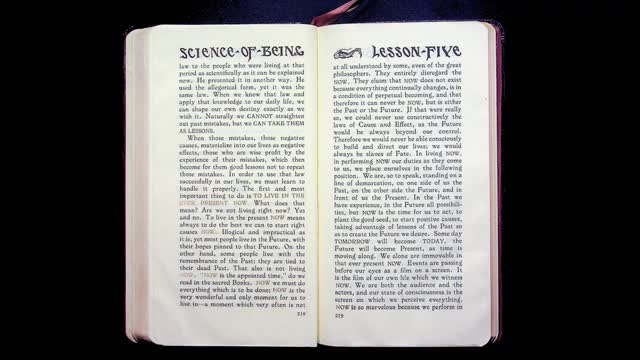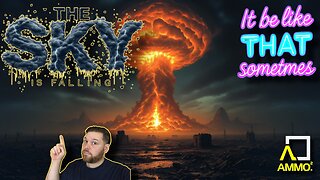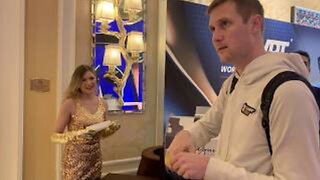Premium Only Content

Science of Being (1923) by Eugene Fersen
Book Introduction:
Baron Eugen Fersen was the eldest son of a Grand Duchess of Russia/Poland, known as Marie Olga Alexandrovna Medem of the Royal House of Medem and DeLacy. An influencial writer and lecturer, he came to the United States in 1904 to share his teachings and lessons known as the Science of Being. He founded the Lightbears Organization in 1921 with a mission to show people, regardless of Race, Nationality, Creed, or Belief, how to obtain the finest and best out of life Physicaly, Mentally, and Spiritually with abundance and Harmony in all three areas.
One of the messages of this book is to KNOW THYSELF. To That, Eugene Fersen wrote:
“This is a very old saying, and highly regarded, especially by the Greeks who laid stress on knowledge. So important that they had it carved in marble over the entrance of their temples.
It is through evolution of one’s own mind that knowledge is increased, and the more we throw the Light within ourselves, the clearer we see things without. We must be ourselves enlightened before we can enlighten others. Self-knowledge is the greatest knowledge; yet how few today realize that. We take so little trouble to study ourselves. There are thousands of scientists who study everything from worlds as a whole to microbes and don’t know anything about themselves. The majority that study outside phenomena know hardly anything of themselves.
If human beings would study themselves, that self-knowledge would give them the key to all else. As it says in the Bhagavad Gita- “the greatest science is the science of self.” If human beings through their highest representatives could have tried to know themselves, humanity would not be today a bunch of “could-be’s,” but “aren’ts.”
That is why we have that motto, for it explains exactly the Science of Being, it explains the aim, the means, and the law through which the aim is achieved. It shows us the start and gives us an idea of the finish. It is the most wonderful statement, which any human being could utter, and in taking the best of everything to join into one harmonious whole, we naturally took it.”
- Eugene Fersen
-
 35:45
35:45
Stephen Gardner
14 hours ago🔴BREAKING: Election Auditor EXPOSES Democrat Election Fraud Evidence!
39.3K58 -
 15:48
15:48
Sponsored By Jesus Podcast
18 hours agoHow to Stop Being JEALOUS | When Comparison Steals Your Joy
12.9K11 -
 3:56:59
3:56:59
DLDAfterDark
8 hours ago $12.74 earnedDon't Worry - Things Will Get SO Much Worse! Sometimes It Be Like That
27.1K6 -
 25:41
25:41
Robbi On The Record
14 hours ago $3.81 earnedThe Billion-Dollar Lie Behind OnlyFans “Empowerment” (Her Testimony Will Shock You) | part II
16.9K12 -
 12:22
12:22
Cash Jordan
6 hours ago"CHICAGO MOB" Fights Back... "ZERO MERCY" Marines DEFY Judge, SMASH ILLEGALS
33.9K46 -
 46:58
46:58
Brad Owen Poker
18 hours agoI Make QUAD ACES!!! BIGGEST Bounty Of My Life! Turning $0 Into $10,000+! Must See! Poker Vlog Ep 323
19.9K7 -
 2:52:28
2:52:28
TimcastIRL
9 hours agoSTATE OF EMERGENCY Declared Over Food Stamp CRISIS, Judge Says Trump MUST FUND SNAP | Timcast IRL
252K144 -
 3:22:45
3:22:45
Tundra Tactical
16 hours ago $21.16 earned🚨Gun News and Game Night🚨 ATF Form 1 Changes, BRN-180 Gen 3 Issues??, and Battlefield 6 Tonight!
46.6K6 -
 1:45:13
1:45:13
Glenn Greenwald
12 hours agoJD Vance Confronted at Turning Point about Israel and Massie; Stephen Miller’s Wife Screams “Racist” and Threatens Cenk Uygur with Deportation; Rio's Police Massacre: 120 Dead | SYSTEM UPDATE #540
122K169 -
 9:05:24
9:05:24
SpartakusLIVE
9 hours agoSpart Flintstone brings PREHISTORIC DOMINION to REDSEC
41.2K10